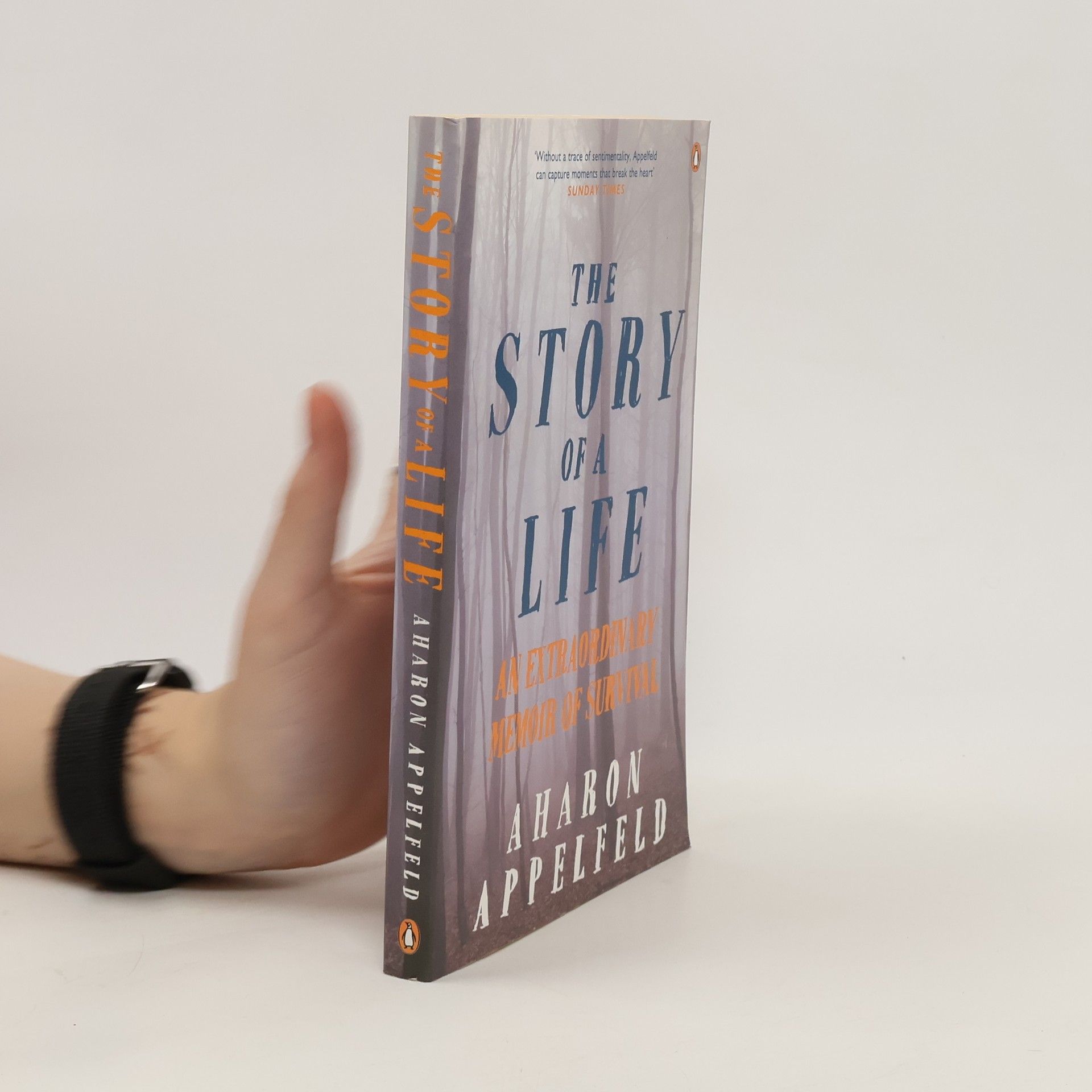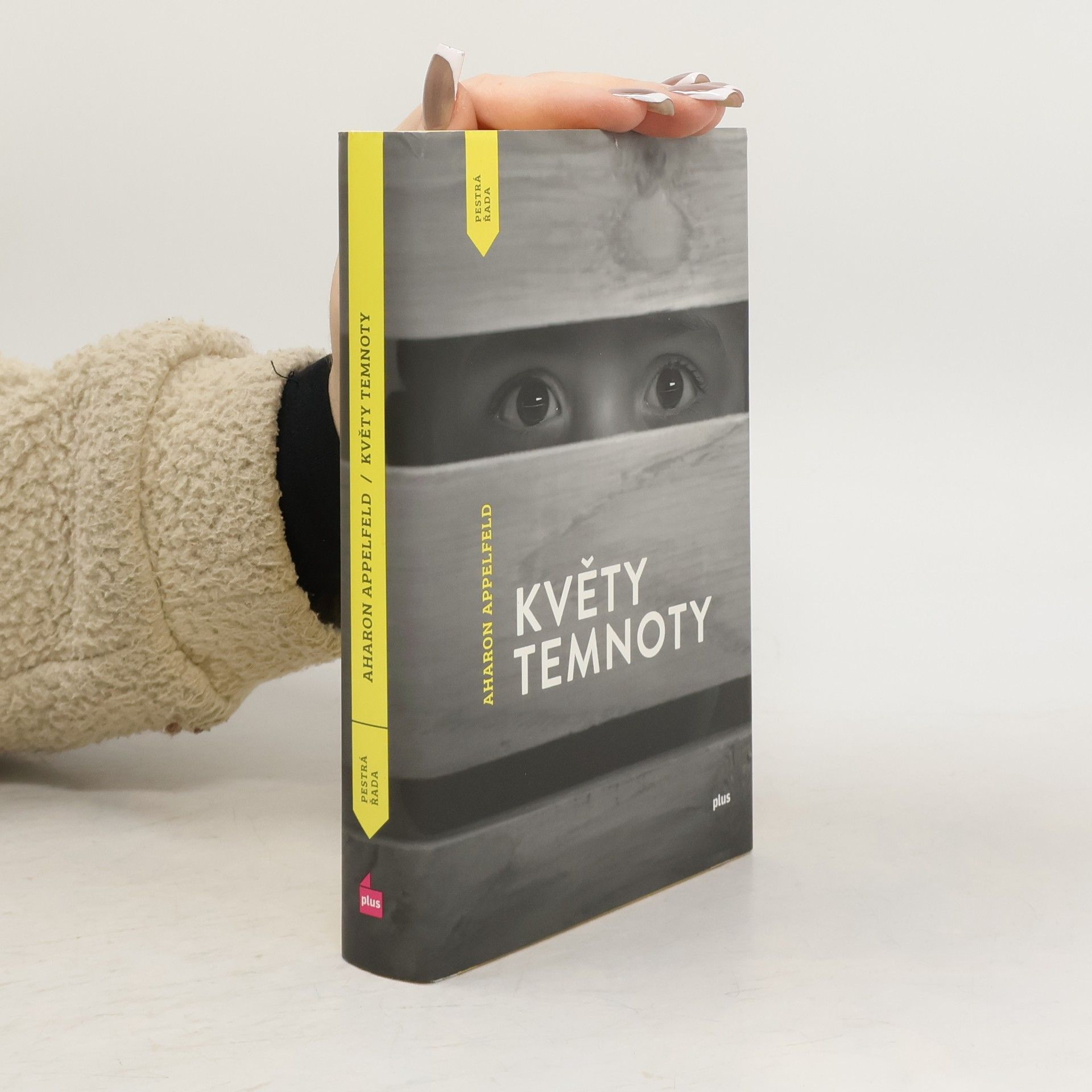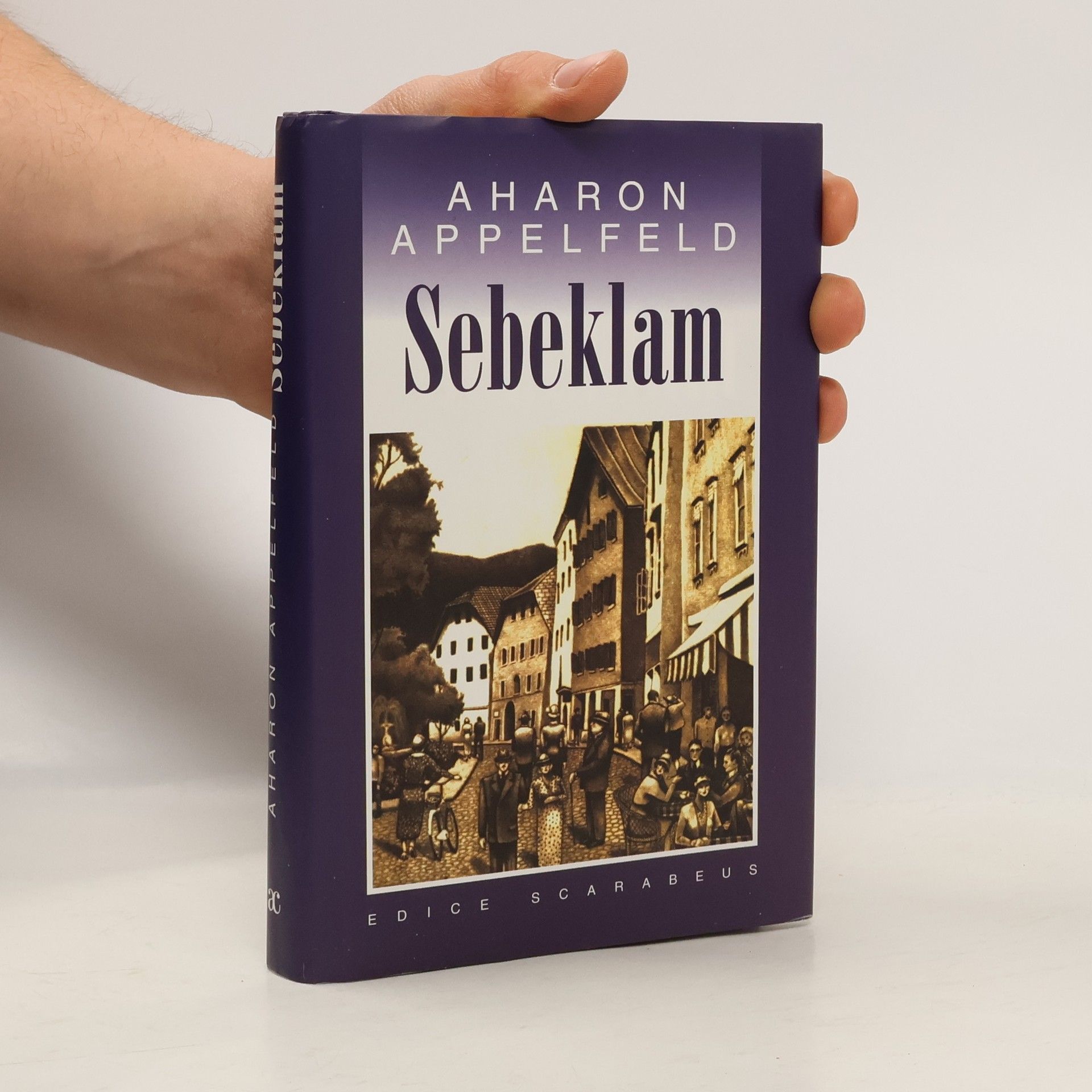Sebeklam
- 260 stránek
- 10 hodin čtení
Dvě novely, ve kterých autor rozvíjí podivné psychologické drama lidí předválečného Rakouska, kteří se postupně nalézají v absurdním světě, na nějž nelze reagovat zcela normálně.
Aharon Appelfeld is widely celebrated for his profound contributions to literature, exploring the complexities of human experience with exceptional depth and nuance. His extensive body of work delves into themes of memory, identity, and survival, often set against the backdrop of historical upheaval. Appelfeld's distinctive prose is characterized by its lyrical quality and its ability to evoke powerful emotions, making his narratives both poignant and unforgettable. He is recognized globally for his significant literary achievements and his enduring impact on contemporary fiction.







Dvě novely, ve kterých autor rozvíjí podivné psychologické drama lidí předválečného Rakouska, kteří se postupně nalézají v absurdním světě, na nějž nelze reagovat zcela normálně.
Je válka a židovští chlapci Adam a Thomas se musí ukrývat v lese a čekat, než bude ve vesnici bezpečno a mámy si pro ně zase přijdou. Mají dost jídla a umí si poradit, ale zásoby se pomalu tenčí, příroda se s chlapci nemazlí a hlad je nemilosrdný. Vtom se jako spásný anděl zjeví holčička Mína. Není nakonec opravdu z jiného světa? Dojemný dětský příběh cenami ověnčeného hebrejského autora o neobyčejné odvaze, hlubokém porozumění a síle, která se skrývá tam, kde bychom ji někdy nečekali.
Židovský chlapec Hugo se ukrývá před nacisty u ukrajinské prostituky Mariany. Ta ve svém pokojíku v místním nevěstinci přijímá zákazníky především z řad nacistických vojáků. Hugo, ukrytý v kumbále za pokojíkem, jen tiše naslouchá dění kolem sebe a časem jeho city ovládne láska k Marianě. Po válce se s příchodem Rudé armády jejich role obrátí: teď je v nebezpečí Mariana. Podaří se Hugovi svou lásku ochránit?
Battling numbing cold, ever-present hunger, and German soldiers determined to hunt them down, four dozen resistance fighters--escapees from a nearby ghetto--hide in a Ukrainian forest, determined to survive the war, sabotage the German war effort, and rescue as many Jews as they can from the trains taking them to concentration camps. Their leader is relentless in his efforts to turn his ragtag band of men and boys into a disciplined force that accomplishes its goals without losing its moral compass. And so when they're not raiding peasants' homes for food and supplies, or training with the weapons taken from the soldiers they have ambushed and killed, the partisans read books of faith and philosophy that they have rescued from abandoned Jewish homes, and they draw strength from the women, the elderly, and the remarkably resilient orphaned children they are protecting. When they hear about the advances being made by the Soviet Army, the partisans prepare for what they know will be a furious attack on their compound by the retreating Germans. In the heartbreaking aftermath, the survivors emerge from the forest to bury their dead, care for their wounded, and grimly confront a world that is surprised by their existence--and profoundly unwelcoming
Aharon Appelfeld was the child of middle-class Jewish parents living in Romania at the outbreak of World War II. He witnessed the murder of his mother, lost his father, endured the ghetto and a two-month forced march to a camp, before he escaped. Living off the land in the forests of Ukraine for two years before making the long journey south to Italy and eventually Israel and freedom, Appelfeld finally found a home in which he could make a life for himself. Acclaimed writer Appelfeld’s extraordinary and painful memoir of his childhood and youth is a compelling account of a boy coming of age in a hostile world.
A Tel Aviv shopkeeper embarks on a journey to his parents' Polish birthplace, seeking to understand their complex legacy, but is unprepared for the realities he encounters. Yaakov Fine's practical wife and daughters are puzzled by his decision to leave his successful dress shop for a ten-day trip to Szydowce, his family's ancestral village. Struggling with midlife depression, he is drawn to the stories of his parents' idyllic hometown before 1939, while the horrors that followed remain unspoken. Upon arriving in Krakow, Yaakov enjoys the charming cafes and relaxed atmosphere, a stark contrast to Tel Aviv. His enchanting landlady, Magda, shares her family's tragic history, deepening his connection to the past. However, when he seeks to reclaim desecrated tombstones stolen from the Jewish cemetery, a starkly different Poland emerges, shattering his romanticized view of the town and its people. This confrontation reveals the tragic reality of Jewish life in Poland, both historically and in contemporary times. Through this journey of revelation and reconciliation, the narrative explores the complexities of memory and identity, resonating with powerful universal themes.
It is the spring of 1939. In months Europe will be Hitler's, and Badenheim, a resort town vaguely in the orbit of Vienna, is preparing for its annual summer season. Soon the vacationers arrive, as they always have, a sample of Jewish middle-class life. The story unfolds as a matter-of-factly as a Chekhov play, its characters so deeply held by their defensive trivia that they manage to misconstrue every signal of their fate, until these signals take on the lineaments of disaster. "The writing flows seamlessly...a small masterpiece." Irving Howe, NEW YORK TIMES BOOK REVIEW "As real as Kafka's unnamed Prague...imbued with a Watteau-like melancholy." Gabriel Annan, NEW YORK REVIEW OF BOOKS "Magical...gliding from a kind of romantic realism into universal allegory." Peter Prescott, NEWSWEEK "The sorcery of Badenheim 1939 [lies in] the success with which the author has concocted a drab narrative involving rather ordinary characters and made their experienced profoundly symbolic yet never hollow." Christopher Lehmann-Haupt, NEW YORK TIMES
Set in an Austrian city before the Holocaust, the narrative follows Karl, a young civil servant whose recent conversion to Christianity is intended to secure a high government position. However, as he faces a political crisis, his past resurfaces, challenging his beliefs and forcing him to confront his identity. The story explores themes of faith, ambition, and the complexities of personal choices against a backdrop of societal upheaval.